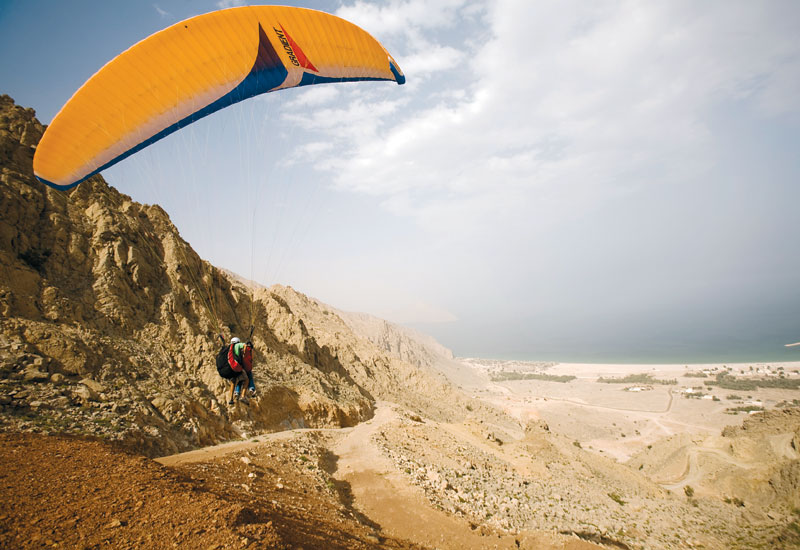Environmental entrepreneurs
On the other hand, Zighy Bay tends to keep its extensive environmental and social campaigns a little quieter.
According to its environment and social responsibilities officer Tara Hammond, who has both a degree in hospitality and a masters in responsible tourism, this is deliberate.
“I have a lot of guests that want to speak to me; they want to know about the area and what we’re doing. They know Six Senses gives back to the local community but we don’t put it too much in their face,” she says.
The projects, which are local, national and global, are financed by the hotel’s Social Environmental Responsibility Fund (SERF).
“Every month, 0.5% of our revenue goes into this fund and it can be from US $3000 to $10,000 every month depending on occupancy,” says Hammond.
Kilgariff adds: “I’ve got a lot of money I can spend. It’s a initiative that the chairman and his wife [Sonu and Eva Shivdasani] set up when they founded the company 14 years ago, so millions of dollars have been raised by the project”.
At Zighy Bay, the money is being invested into programmes as diverse as Build a Smile, a fantastic project which involves guests rebuilding homes for villagers in return for free room nights, ‘Dental Care’ for children of the local village, Zighy Bay English classes, monthly blood donations and a scheme to protect the coral reef in partnership with the Environment Society of Oman
In addition to the SERF fund, 2% of room revenue is channelled towards Six Senses Carbon Offset Fund, which establishes alternative energy producing methods in communities of developing countries.

Advertisement
The first project is in Tamil Nadu, India.
As a company, Six Senses is also going a step further and developing its own ‘carbon calculator’.
“That’s going to look at all our carbon emissions, so I need to put the systems in place for people to be able to measure that sort of thing,” Hammond explains.
“It will look at all our guests’ and hosts’ flights, [the transport] of every single piece of food and other item that has reached here from its original country, [the fact that] all guests get here by car, excursions, waste, meals — what proportion is vegetarian and non-vegetarian etc.
“There are eco lodges [doing this sort of thing] but on the luxury level this is really advanced. There is actually someone doing it; it’s not talk.”
Despite the pressures to get these systems in place, Hammond clearly thinks it is both well worth it and absolutely necessary.
“I don’t think it’s expensive; because we are a luxury resort so we do have the capital to invest in it. The return on investment is also high as well.
“I don’t think there is any option at the moment in the way things are going in the world. Here in Dubai, especially the hotels and resorts are going towards being greener and we’re just lucky that we are a step ahead at the moment.
“I think people are choosing us over other resorts because of our credentials,” she adds.
At the same time, Hammond is the first to admit that a resort with some 80 private pool villas that requires transport by car is unlikely to ever be completely sustainable.
She hopes though that once the Six Senses carbon calculator is finalised — and with the addition of solar panels that Hammond says will “definitely be coming in the future” — all carbon emissions will be offset, making the resort as sustainable and ecologically-minded as possible.









 Search our database of more than 2,700 industry companies
Search our database of more than 2,700 industry companies









